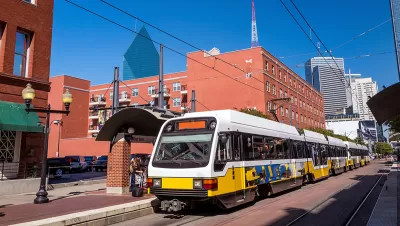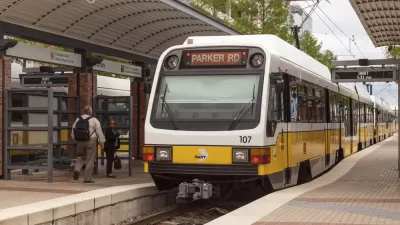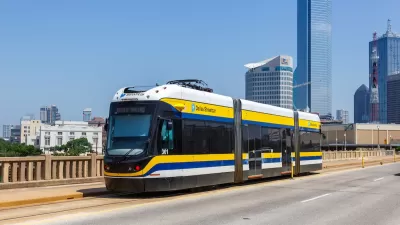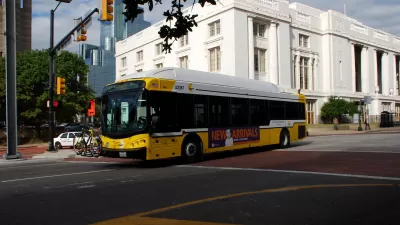Between DART service optimization and deciding the fate of I-345, Dallas has big of decisions to make. The right consultant, who understands accurate framing of planning issues, could help choose a route that best serves Dallasites.

Dallas Area Rapid Transit (DART), with the help of an urban planning consultant, surveyed Dallas residents to answer a seemingly simple question: Would you prefer more service over a larger area or better service in a smaller service area? According to Peter Simek, this simple question had been posed to residents in a misleading way for years, leading to DART policies and systems that failed to serve the best interest of Dallasites.
"The question just had to be asked in a way that made it clear that they were choosing between quality over quantity," says Simek. Once the phrasing was corrected by an effective and experienced planning consultant, DART learned that a staggering 76% of residents preferred a system that increased, optimized service frequency of fewer routes.
"The simple rephrasing of the choices facing Dallas residents shows how the right consultants — the ones who understand the scope and stakes of complicated urban planning problems — can propel a public process toward new and more beneficial solutions," writes Simek.
This issue, a lack of consultancy in Dallas' planning process isn't limited to DART service, Simek argues, describing transportation advocates' well documented struggle to remove highway I-345 and replace the thoroughfare with an at-grade boulevard.
Simek asks: "As with DART’s bus redo, it all comes down to how the engineers, consultants, and bureaucrats working on the project frame the question. Is Dallas trying to solve for moving traffic through the city center or is it trying to revitalize the urban core?"
The answer, Simek says, depends on Dallas' willingness to "hire a traffic consultant who has a proven track record with dealing with urban transportation planning with the nuance and subtlety it deserves."
FULL STORY: How Urban Planning Consultants Can Shape the Future of Dallas

Study: Maui’s Plan to Convert Vacation Rentals to Long-Term Housing Could Cause Nearly $1 Billion Economic Loss
The plan would reduce visitor accommodation by 25,% resulting in 1,900 jobs lost.

North Texas Transit Leaders Tout Benefits of TOD for Growing Region
At a summit focused on transit-oriented development, policymakers discussed how North Texas’ expanded light rail system can serve as a tool for economic growth.

Using Old Oil and Gas Wells for Green Energy Storage
Penn State researchers have found that repurposing abandoned oil and gas wells for geothermal-assisted compressed-air energy storage can boost efficiency, reduce environmental risks, and support clean energy and job transitions.

Santa Barbara Could Build Housing on County Land
County supervisors moved forward a proposal to build workforce housing on two county-owned parcels.

San Mateo Formally Opposes Freeway Project
The city council will send a letter to Caltrans urging the agency to reconsider a plan to expand the 101 through the city of San Mateo.

A Bronx Community Fights to Have its Voice Heard
After organizing and giving input for decades, the community around the Kingsbridge Armory might actually see it redeveloped — and they want to continue to have a say in how it goes.
Urban Design for Planners 1: Software Tools
This six-course series explores essential urban design concepts using open source software and equips planners with the tools they need to participate fully in the urban design process.
Planning for Universal Design
Learn the tools for implementing Universal Design in planning regulations.
Ascent Environmental
Borough of Carlisle
Institute for Housing and Urban Development Studies (IHS)
City of Grandview
Harvard GSD Executive Education
Toledo-Lucas County Plan Commissions
Salt Lake City
NYU Wagner Graduate School of Public Service





























